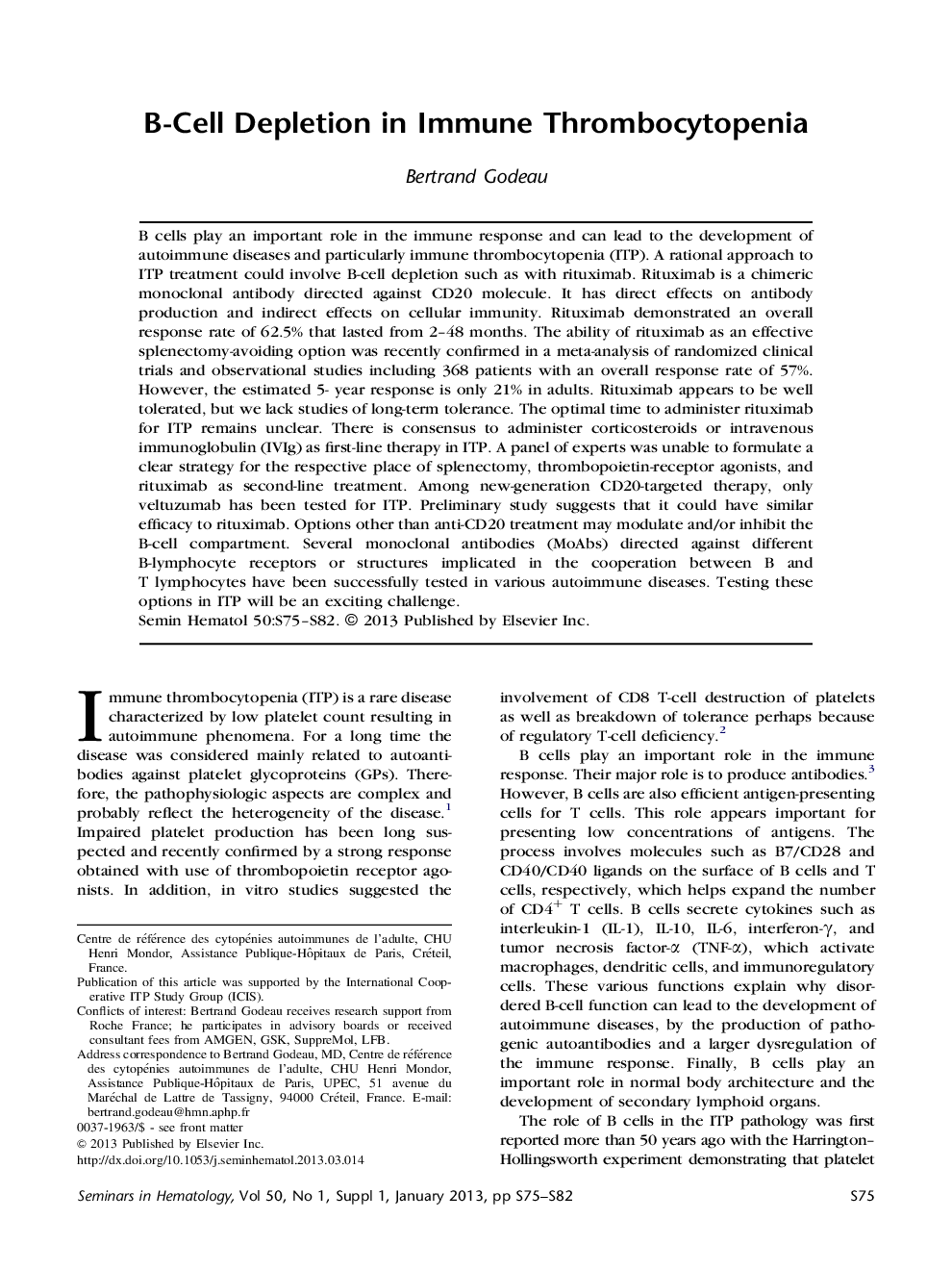| Article ID | Journal | Published Year | Pages | File Type |
|---|---|---|---|---|
| 6113825 | Seminars in Hematology | 2013 | 8 Pages |
Abstract
B cells play an important role in the immune response and can lead to the development of autoimmune diseases and particularly immune thrombocytopenia (ITP). A rational approach to ITP treatment could involve B-cell depletion such as with rituximab. Rituximab is a chimeric monoclonal antibody directed against CD20 molecule. It has direct effects on antibody production and indirect effects on cellular immunity. Rituximab demonstrated an overall response rate of 62.5% that lasted from 2-48 months. The ability of rituximab as an effective splenectomy-avoiding option was recently confirmed in a meta-analysis of randomized clinical trials and observational studies including 368 patients with an overall response rate of 57%. However, the estimated 5- year response is only 21% in adults. Rituximab appears to be well tolerated, but we lack studies of long-term tolerance. The optimal time to administer rituximab for ITP remains unclear. There is consensus to administer corticosteroids or intravenous immunoglobulin (IVIg) as first-line therapy in ITP. A panel of experts was unable to formulate a clear strategy for the respective place of splenectomy, thrombopoietin-receptor agonists, and rituximab as second-line treatment. Among new-generation CD20-targeted therapy, only veltuzumab has been tested for ITP. Preliminary study suggests that it could have similar efficacy to rituximab. Options other than anti-CD20 treatment may modulate and/or inhibit the B-cell compartment. Several monoclonal antibodies (MoAbs) directed against different B-lymphocyte receptors or structures implicated in the cooperation between B and T lymphocytes have been successfully tested in various autoimmune diseases. Testing these options in ITP will be an exciting challenge.
Related Topics
Health Sciences
Medicine and Dentistry
Hematology
Authors
Bertrand Godeau,
